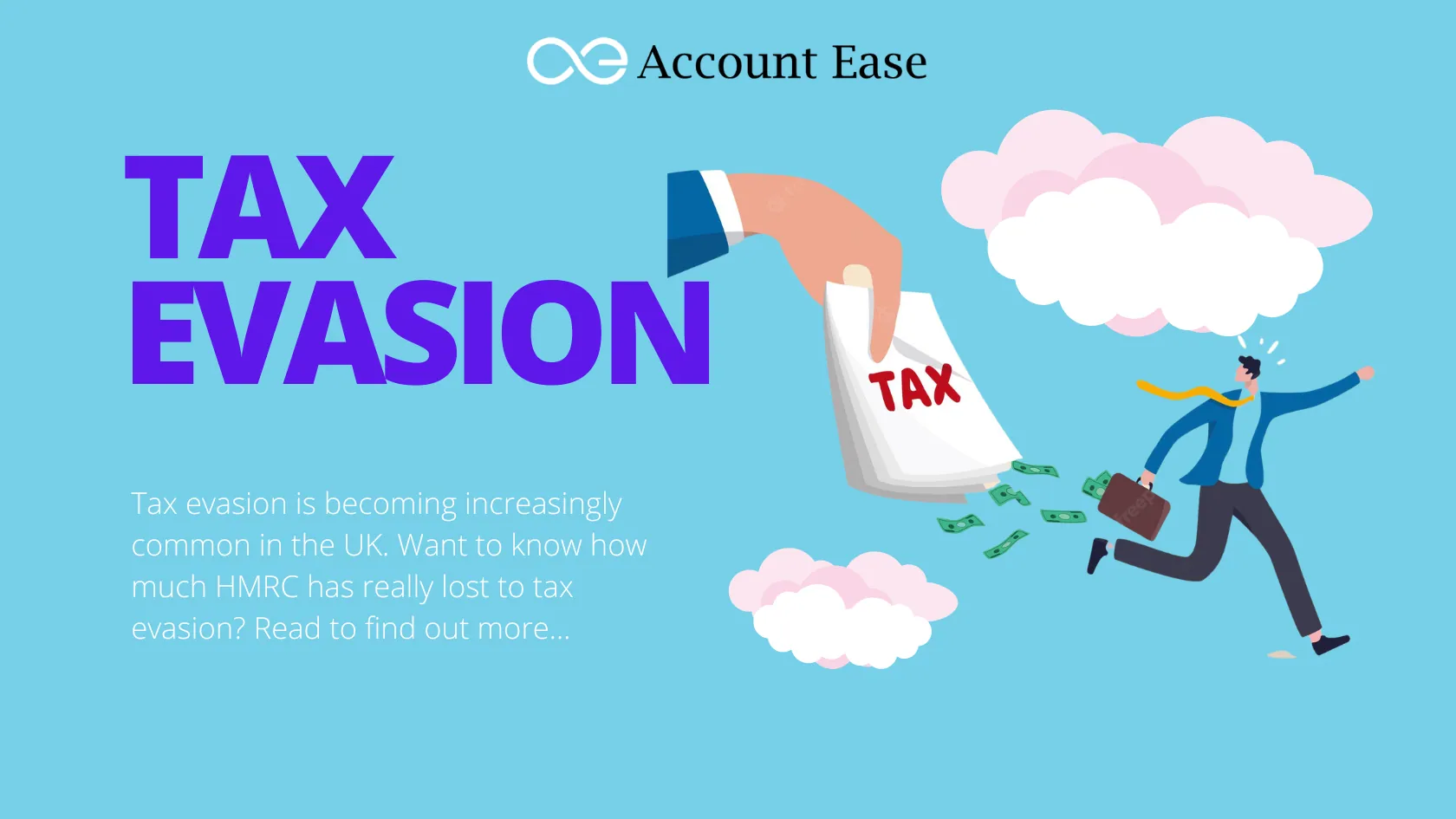Tax evasion – it’s becoming increasingly common in the UK. From celebrities to big corporations, there have been multiple high-profile cases on the news of HMRC being short-changed.
But how much have HMRC really lost to tax evasion? Read to find out more!
First of all, what exactly is tax evasion?
Tax evasion, tax avoidance, tax efficiency – it can all become a huge blur. But to keep it short and simple, tax evasion is purposely not paying or underpaying the tax you owe. This is illegal and most likely HMRC’s biggest “pet peeve”.
What are some common instances of tax avoidance within the UK?
Paying or not paying tax isn’t just about not bothering to report tax-deductible income to HMRC. There are a variety of ways in which individuals end up being in the tax department’s black book.
This could be done by:
- Maintaining your business out of the financial books (so using cash)
- The ability to hide money shares, money or other assets in accounts at banks located offshore
- The writing off of personal expenses is a taxes-deductible expenses for business
- Utilizing the property of the company to use for personal purposes (yes it’s not legal)
Even with all these examples of tax evasions, the most expensive and difficult problem for HMRC is in fact strategies to avoid tax.
What is the purpose of tax-evasion schemes within the UK?
Schemes to avoid tax are firms that have been designed to help taxpayers pay less than the fair amount of NICs and tax.
A lot of these schemes take the form of umbrella companies that are not compliant that claim they can assist you in keeping more of you money through paying less taxes. They may offer your wages as an advance loan, salary or grant, or a set life-time amount of money.
HMRC define tax avoidance to mean “bending tax laws in order to get an advantage in taxation that the Parliament never planned.’
They also declare that “most tax avoidance strategies simply don’t work and those who employ these strategies could end up having to pay a lot higher than what they were trying to avoid, which includes penalties.’
The shade.
It is safe to affirm that HMRC isn’t in the business of tax avoidance schemes in any way despite the claims of many promoters that HMRC actually supports the tax-evasion schemes.
What is the impact of tax avoidance (UK)?
Tax evasion is an offense. And , as is the norm, crime results in consequences. Particularly when it comes to messing up with HMRC.
For tax evasion, you can face anywhere between a few months to seven years in prison (depending on the severity of the situation). Also, you can be penalized anywhere from £ 5,000 to an unlimitable amount.
The consequences of participating in tax-evasion schemes can be quite severe, too. If you do fall victim to what seems like a harmless “want to reduce tax’ advertisement online and you’re required to pay any tax you owe, and could be subject to an extra charge.
It’s like lots…
Yup.
That’s the reason HMRC have put forth a myriad of attempts to stop taxpayers using tax-evasion schemes. For instance the don’t be caught out campaign (and incessant pleas to the public to avoid using the schemes, regardless of the opinions of Jimmy Carr says).
They’ve used their rights under the Finance Act 2022 to publish details about the tax-evasion schemes as well as their promotors. As per the law they also have the ability to directly seek information from promoters regarding their activities.
HMRC vs UK tax avoidance schemes
The outcome of HMRC’s work?
It’s true that the tax-payer’s use of avoidance strategies has decreased since 2017/2018. In the past the number was at an all-time high.
(And after that, naturally there was news in the press that Take That band member Gary Barlow was forced to pay £ 20 million in tax due to participating in a tax-evasion scheme that was in place for four years before (yikes!)
In the year 2020/21, HMRC estimated that 31,000 taxpayers and 1,000 individuals employed tax avoidance schemes. This represented a massive drop in comparison to previous years.

